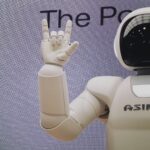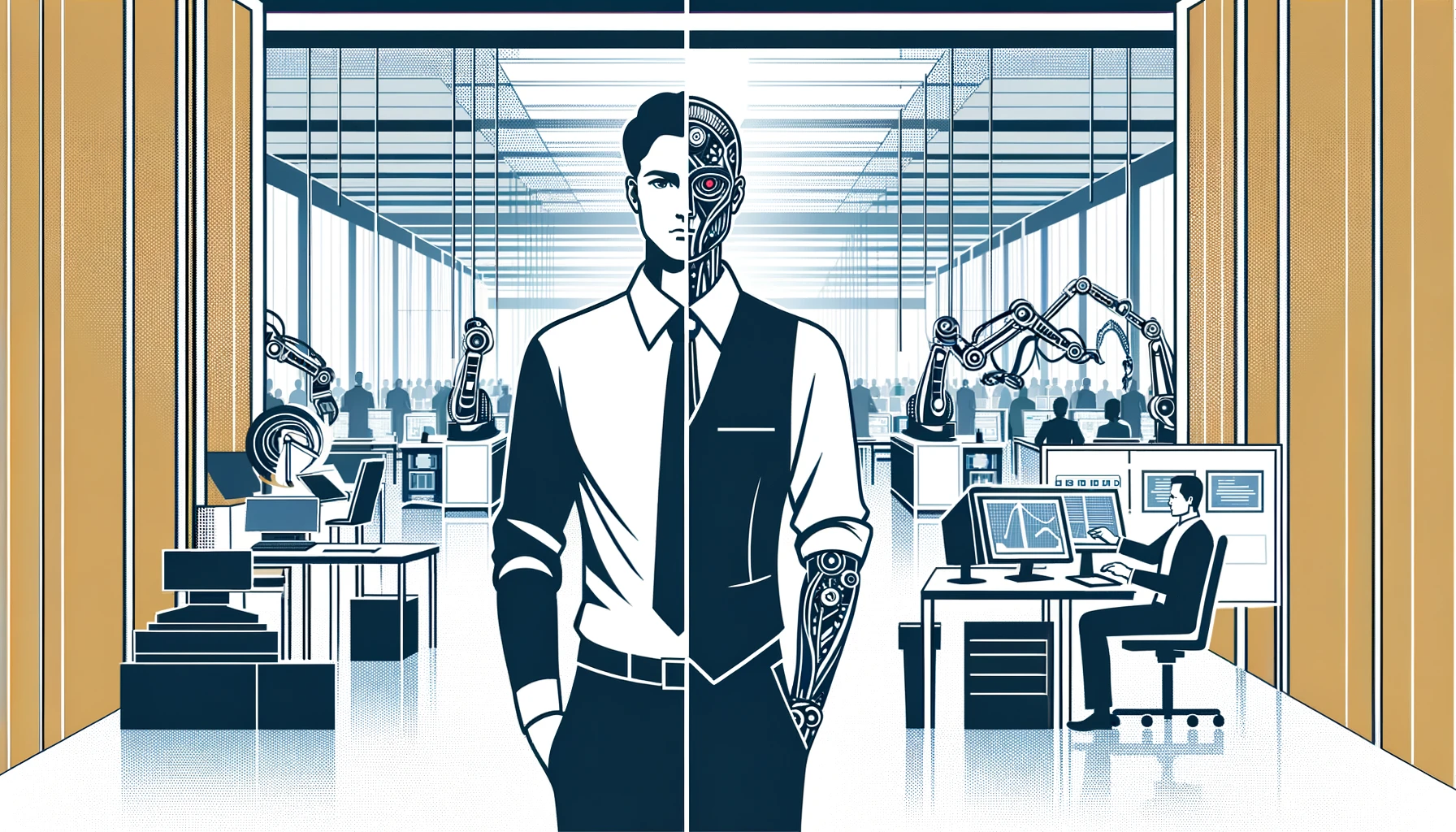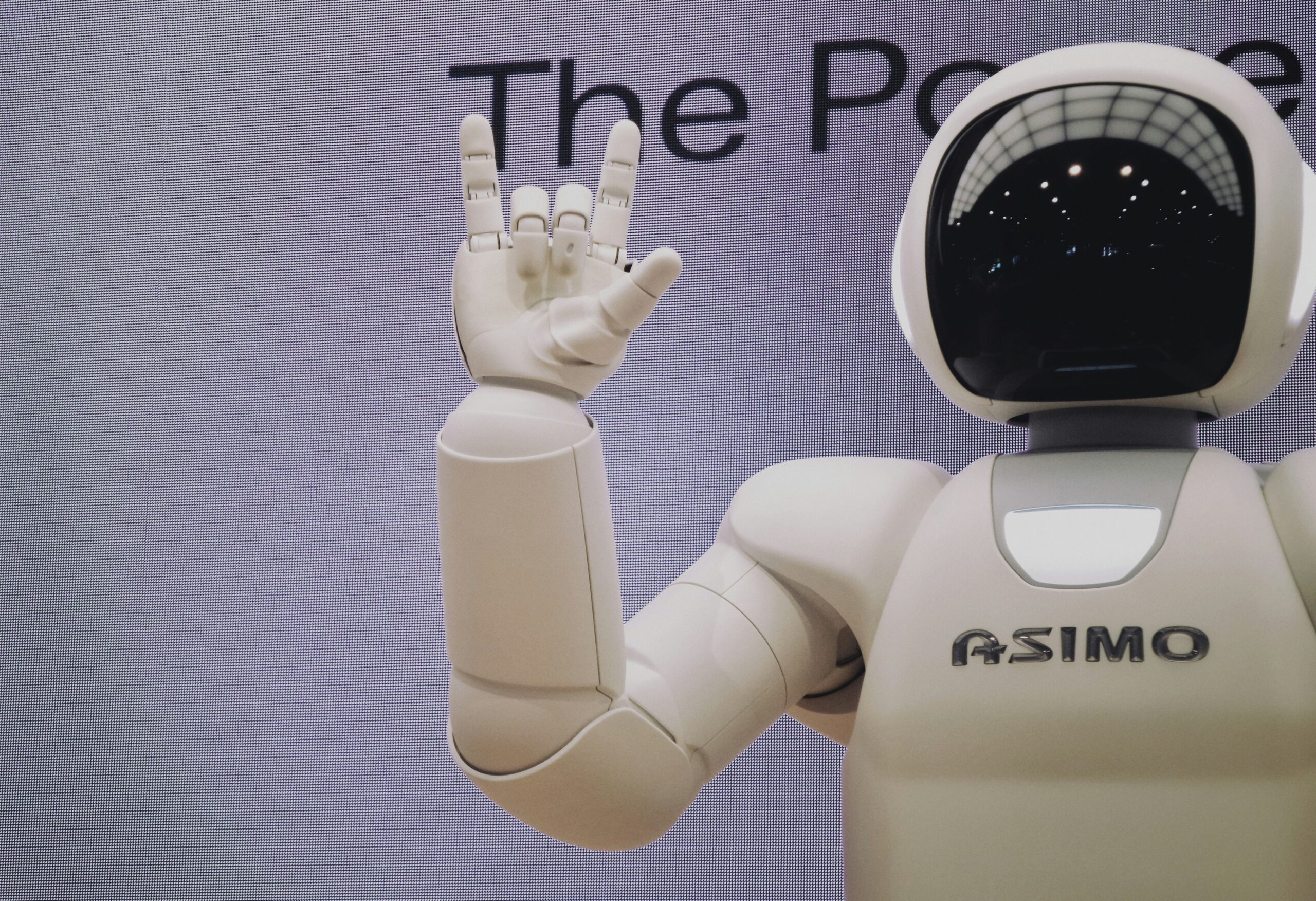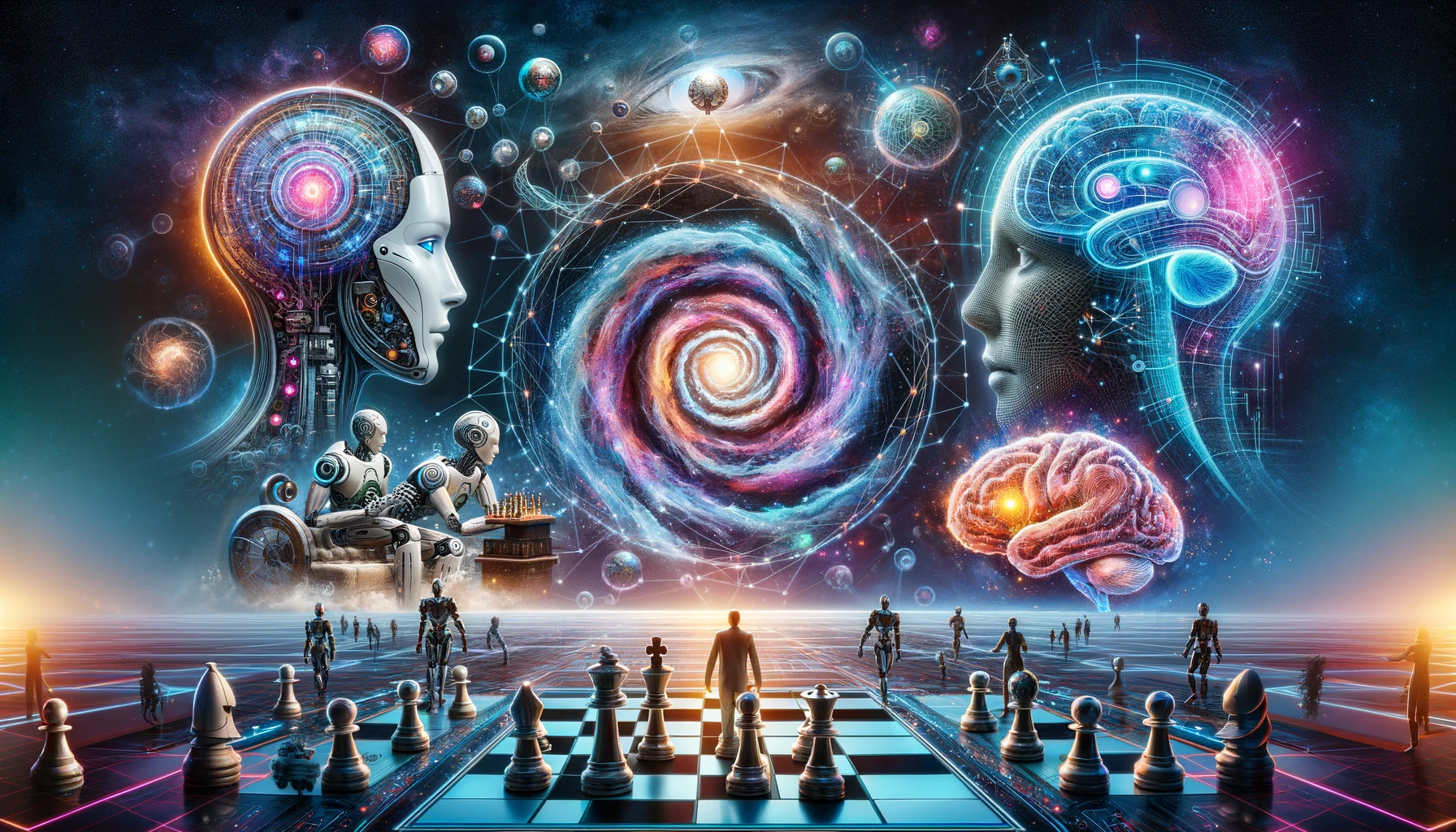Artificial Intelligence is the word that is all over the internet right now! Some of you may think it is irrelevant to you, but in one or the other way you are already a regular user of it. If you are planning your tasks, keeping reminders, and more through your voice assistants, then you are already a potential user of AI systems. Not only these activities but also your Netflix movie recommendations, your Amazon product recommendations, and your self-driving cars are all the results of AI! Whether you like it or not, AI has become a necessity for completing our day-to-day activities in an enhanced manner.
But if you are still wondering, “WHAT is AI?” “What are the advantages and disadvantages of AI?” and many other questions; then this is the write-up to ease your mind overflowing with these queries, especially its pros and cons. But before we start with them, let’s start by understanding what exactly is AI (Artificial Intelligence).
What is Artificial Intelligence (AI)?
In order to understand the advantages and disadvantages of AI, you must first understand what is AI. In simple terms, Artificial Intelligence (AI) is the technique that trains machines to learn from experiences and solve problems showcasing human intelligence. This advanced technology helps implement mechanisms beyond just automation and incorporates AI skills on various challenging tasks. AI can be classified into 3 types of AI based on its capabilities:
- Narrow AI (Weak AI) – Such AI systems will focus on completing specified tasks and can’t serve beyond their limitations. The best example of it is the ones we use for our daily activities.
- General AI (Strong AI) – The idea of General AI is to develop a machine that is as intellectually capable and able to perform tasks as humans. It is still under research and yet to be attained.
- Superintelligent AI (Super AI) – An AI that surpasses human intelligence and outperforms humans in completing tasks. It is still a theory.
Advantages and Disadvantages of Artificial Intelligence (AI)
Artificial Intelligence (AI) comes with a mix of advantages and disadvantages that are reshaping many aspects of today’s world. On the positive side, AI can perform multiple tasks with significantly enhanced efficiency, thereby improving productivity and potentially reducing human errors. It is capable of handling different types of data; including complex and large volumes of data sets, leading to remarkable results from multiple fields. Moreover, AI helps to automate tasks, which frees up the time for humans to invest in creative and strategic work.
However, along with its positive side, AI also comes with challenges. One of the major concerns is job displacement, as AI can automate tasks and humans can be replaced, leading to unemployment in certain roles. AI systems can learn biases from their training data, which can result in unfair outcomes. This raises ethical concerns. Additionally, the rise in the usage of AI results in numerous data collections, which can pose privacy threats. There is a high risk of dependency where humans can overly rely on AI to complete their tasks, which can erode human skills like creativity, strategic thinking, and problem-solving abilities. A balance between these advantages and disadvantages of AI is crucial as we deeply incorporate AI into our lives and work.
Now, let’s look into the advantages of AI.
Benefits and Advantages of AI
1. 24/7 Availability
Unlike humans, AI systems do not require breaks, sleep, or vacations. They can work continuously without fatigue, providing round-the-clock service. This is particularly beneficial in customer service applications, where AI chatbots can offer instant responses to customer queries at any time of the day, improving user experience and operational efficiency.
2. Handling Repetitive Tasks
AI excels at automating tedious and monotonous jobs, freeing up human workers for more complex and creative tasks. In industries like banking or legal, AI can manage routine tasks such as document verification and due diligence, ensuring high levels of consistency and freeing humans from the drudgery of repetitive work.
3. Reduction in Human Error
One of the standout benefits of Artificial Intelligence is its ability to dramatically diminish mistakes, enhancing both accuracy and precision in various tasks. AI systems base their decisions on previously collected data and specific algorithms. With the right programming, the margin for error can be minimized almost entirely. For example, in space explorations, AI-powered robots can execute complex maneuvers with precision far beyond human capability, reducing the risk of costly errors.
4. Digital Assistance
Many businesses employ digital assistants to interact with their users, saving the need for human resources. AI-driven digital assistants can guide users through websites, answer FAQs, and even troubleshoot basic issues, streamlining the customer journey and enhancing satisfaction.
5. Making Faster Decisions
AI can process and analyze data much faster than humans, enabling quicker decision-making. In the stock market, AI algorithms can analyze market conditions in real time and execute trades at speeds no human trader can match, capitalizing on opportunities the moment they arise.
6. Enhancing Customer Experience
By personalizing the user experience, AI can significantly improve customer satisfaction. Online retailers, for example, use AI to analyze browsing habits and purchase history to recommend products that individual customers are likely to buy, making shopping more convenient and tailored to personal preferences.
7. Innovations in Healthcare
AI’s ability to analyze large datasets is revolutionizing healthcare, from personalized treatment plans to early detection of diseases. AI algorithms can sift through millions of medical records in minutes, identifying patterns and insights that can lead to more effective treatments and improved health outcomes.
8. Streamlining Supply Chain Operations
AI can optimize logistics and supply chain management, predicting demand, optimizing delivery routes, and managing inventory efficiently. This reduces operational costs and improves customer satisfaction by ensuring products are in stock and delivered promptly.
9. Enhancing Security
AI plays a crucial role in security systems, from cybersecurity defenses that detect and neutralize threats in real time to surveillance systems that use facial recognition technology to identify potential risks. These AI systems improve the security and safety of both digital and physical spaces.
10. Facilitating Remote Work
AI tools and platforms enable more effective remote work, from virtual meeting assistants that can summarize discussions and track action items to project management tools that predict project timelines and identify risks. This not only makes remote collaboration more efficient but also opens up new possibilities for how and where work can be done.
Artificial Intelligence is reshaping our thoughts of productive work. It is highly enhancing the processes to get better results. It is the best example of modern technological progress and comes up with groundbreaking advances in various fields.
Cons and Disadvantages of AI
1. High Initial Costs
Implementing AI technology often involves significant initial investments in hardware, software, and expertise. For instance, setting up AI systems for predictive maintenance in manufacturing can be costly due to the need for advanced sensors and data analytics software, making it a financial challenge for smaller operations.
2. Job Displacements
AI’s ability to automate tasks can lead to job losses, particularly in sectors like manufacturing, customer service, and administration. Automated customer service chatbots, for example, can handle many tasks previously performed by human representatives, potentially leading to unemployment in those roles.
3. Lack of Emotional Understanding
AI systems cannot replicate human emotions and may struggle with tasks that require empathy, making them unsuitable for positions in caregiving or mental health support. For instance, while AI can provide factual health advice, it cannot offer the emotional support a human nurse or doctor can.
4. Dependence on Technology
Over-reliance on AI can lead to skill degradation among workers, as tasks are increasingly delegated to machines. This dependence could be problematic if systems fail or in situations requiring human intervention, such as when an autonomous vehicle encounters an unforeseen obstacle.
5. Privacy Concerns
AI systems that process personal data can raise privacy issues, especially if the data is handled without adequate security measures. For example, facial recognition technologies can track individuals without their consent, leading to potential privacy infringements.
6. Security Risks
AI systems can be vulnerable to hacking and other cybersecurity threats. A compromised AI system in critical infrastructure, such as power grids or financial systems, could have catastrophic consequences.
7. Bias in Decision-Making
AI algorithms can inherit biases from their training data, leading to unfair or discriminatory outcomes. An AI system used in hiring processes might display bias against certain demographics if the training data reflected historical hiring biases.
8. Ethical and Moral Concerns
The use of AI in areas like surveillance or autonomous weaponry raises ethical questions about the extent to which machines should control or influence human lives and decisions.
9. Reduced Human Interaction
With AI handling more interactions, opportunities for human contact may decrease, impacting customer service quality and reducing personal connections in sectors like retail and banking.
10. Unpredictability
AI systems, especially those using machine learning, can sometimes act in unpredictable ways due to their complex algorithms. For example, an AI system trading stocks might suddenly make unexpected trades based on anomalies in data, potentially causing market volatility.
11. Environmental Impact
The energy consumption required to train and run large AI models can be substantial, contributing to carbon emissions and environmental degradation. Data centers powering AI algorithms consume vast amounts of electricity, raising concerns about their environmental footprint.
Considering these are a few of the disadvantages of AI, we should address these challenges with careful ethical consideration, and a balanced approach to inculcate AI into society. AI should benefit humanity more while keeping its disadvantages to a minimum.
Advantages and Disadvantages of AI in Various Sectors and Industries
| Sector/Industry | Advantages of AI | Disadvantages of AI |
| AI in Marketing & Advertisement | – Through AI-driven data analysis, one can create highly targeted and personalized advertising campaigns. – Saves time and resources by automating the content creation for marketing materials. – AI can predict consumer trends, leading to more effective marketing strategies. | – Over-reliance on AI can lead to less creative inputs from humans, which in return will lead to less innovative campaigns. – Potential ethical concerns in manipulating consumer behavior. – Risk of creating echo chambers through overly personalized content. |
| AI in Healthcare | – Enhances diagnostic accuracy. – AI can provide a personalized treatment plan. – Streamlines drug discovery. | – High implementation costs. – Lack of empathy in patient care. – Privacy concerns with patient data. |
| AI in Finance | – Fraud detection and security. – Automated customer service. – Enhanced decision-making. | – Privacy and security concerns. – Risk of bias in algorithms. – Reduction in human jobs. |
| AI in Security | – Enhanced surveillance capabilities. – Early threat detection through predictive analysis. – Improved cybersecurity measures. | – Privacy infringement concerns. – Ethical dilemmas in surveillance use. – Dependence on AI for security. |
| AI in Education | – Personalized learning experiences. – Automation of administrative tasks. – Access to global information. | – Reduced human interaction. – Dependence on technology for learning. – Accessibility issues for underprivileged areas. |
| AI in Creativity (Music, Visual Arts, Writing) | – AI can inspire new forms of art and music, generating unique compositions and artworks. – AI tools help writers by suggesting content and generating ideas. – Automation of creative processes can lead to innovative design solutions. | – AI has the potential to diminish the value of human creativity and originality. – Concerns over copyright and ownership of AI-generated content. – Risk of homogenization in creative outputs. |
| AI in Employment & Workforce | – Creation of new job categories and opportunities in AI development and maintenance. – Automation of difficult tasks. | – Displacement of traditional jobs. – Skills mismatch and retraining challenges. – Ethical concerns over workforce surveillance. |
Conclusion
Artificial Intelligence brings both advantages and disadvantages to the table. Developers and industries need to strategically bring AI to the picture for more benefits than cons. Now as you are well aware of the pros & cons of AI, which is the current ruler of the technical world, you also know that it holds a real power to enhance the world we live in. Thus, it’s in the hands of humans to not let it slide in the wrong way. Even though there are potential pros and cons of Artificial Intelligence, its impact on the digital world cannot be overstated. It is better to be well-versed in AI skills as we are witnessing exponential growth of it in today’s world. Stay Educated and Play Safe!










